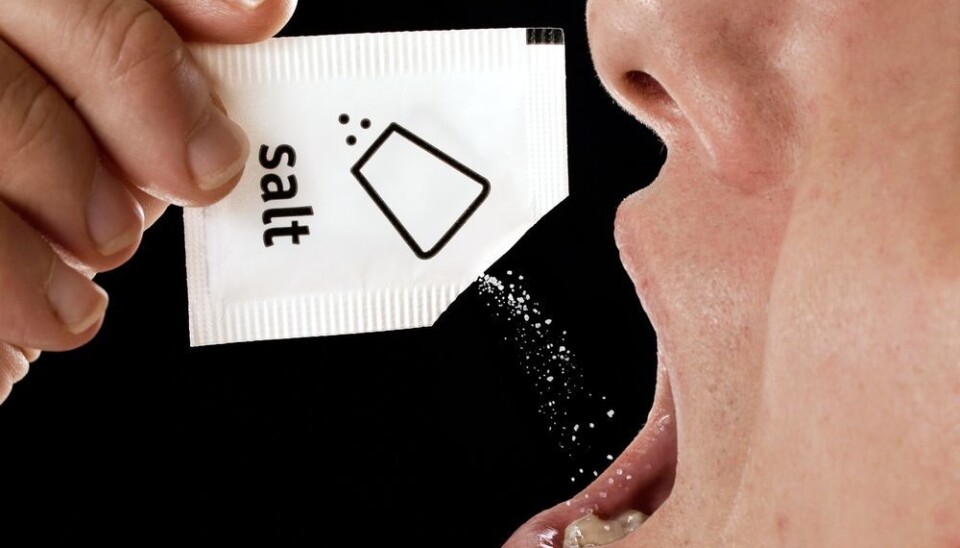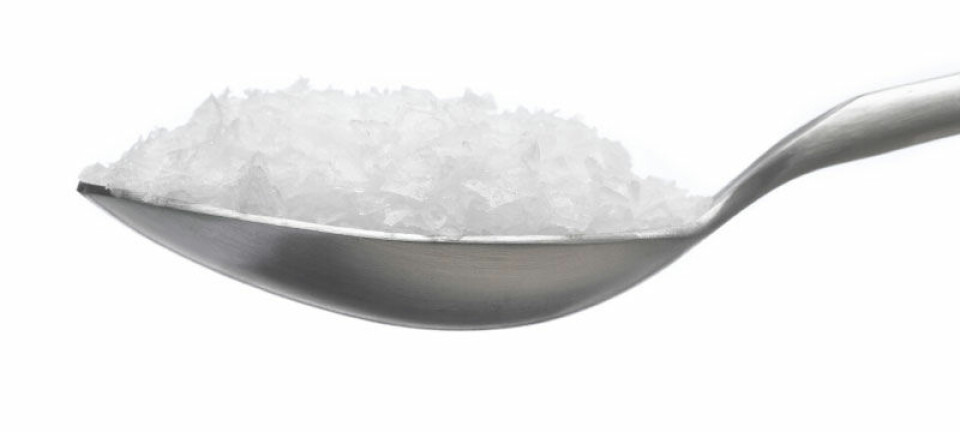
Only few eat too much salt
We can easily eat 12 grams of salt a day without getting sick, and too little salt can be harmful, new study suggests.
Although the Danish food authorities recommend that we should only eat 5-6 grams of salt per day, we can actually eat twice that without putting our health at risk.
So concludes Niels Graudal, a consultant doctor at the Copenhagen University Hospital, who has reviewed a number of studies that examined the correlation between salt and mortality.
”We can see that the vast majority of Danes consume between 6 and 12 grams of salt a day, and that if you eat more, or less, than this amount, mortality rates increase by 10-15 percent. So it makes sense to ask people who have a high salt intake to eat less salt – but according to our studies, a daily intake of 12 grams is acceptable,” he says.
In the new study, Graudal and colleagues reviewed 25 population studies in which subjects were divided into groups according to high or low salt intake, and a ‘middle group’ consisting of subjects who had a daily salt intake of 6-12 grams.
The current limits of salt intake are not based on direct documentation, but rather on estimates of the correlation between salt intake and blood pressure, and between blood pressure and mortality rates. There are many blood pressure studies that are inconsistent with these estimates.
The review found that the large middle group was least likely to die prematurely.
“The evidence we are presenting suggests that 95 percent of the Danish population can safely continue to eat the amount of salt they have always been eating. Only those who eat great amounts of salt need to cut down on their salt intake,” says Graudal.
He suggests that the Danish food authorities ought to review their current recommendations for daily salt intake:
“The problem is that the current limits of salt intake are not based on direct documentation, but rather on estimates of the correlation between salt intake and blood pressure, and between blood pressure and mortality rates. There are many blood pressure studies that are inconsistent with these estimates,” he says.
“Our new documentation also has its limitations, since we have not tested on humans, and when you measure the amount of salt in people’s urine, or when you ask them how much salt they believe they have consumed, this often leads to a certain degree of uncertainty. But at least we now have some form of documentation that a recommended limit of 5-6 grams per day is too low.”
See ‘scientific literature’ below this article for more on the scientific discussion about salt intake.
-------------------
Read the Danish version of this article at videnskab.dk
Scientific links
- Compared With Usual Sodium Intake, Low- and Excessive-Sodium Diets Are Associated With Increased Mortality: A Meta-Analysis; American Journal of Hypertension
- Effects of low sodium diet versus high sodium diet on blood pressure, renin, aldosterone, catecholamines, cholesterol, and triglyceride; Cochrane Database Syst Rev. 2011 Nov 9;(11):CD004022. doi: 10.1002/14651858.CD004022.pub3; PubMed
- Change in salt intake affects blood pressure of chimpanzees: implications for human populations. Circulation. 2007 Oct 2;116(14):1563-8
- The effect of increased salt intake on blood pressure of chimpanzees. Nat Med. 1995 Oct;1(10):1009-16
- Moderate salt restriction effectively lowers blood pressure and degree of salt sensitivity is related to baseline concentration of renin and N-terminal atrial natriuretic peptide in plasma; J Hypertens. 2007 Mar;25(3):619-27
- A randomized trial of dietary sodium restriction in CKD. J Am Soc Nephrol. 2013 Dec;24(12):2096-103. doi: 10.1681/ASN.2013030285. Epub 2013 Nov 7.









